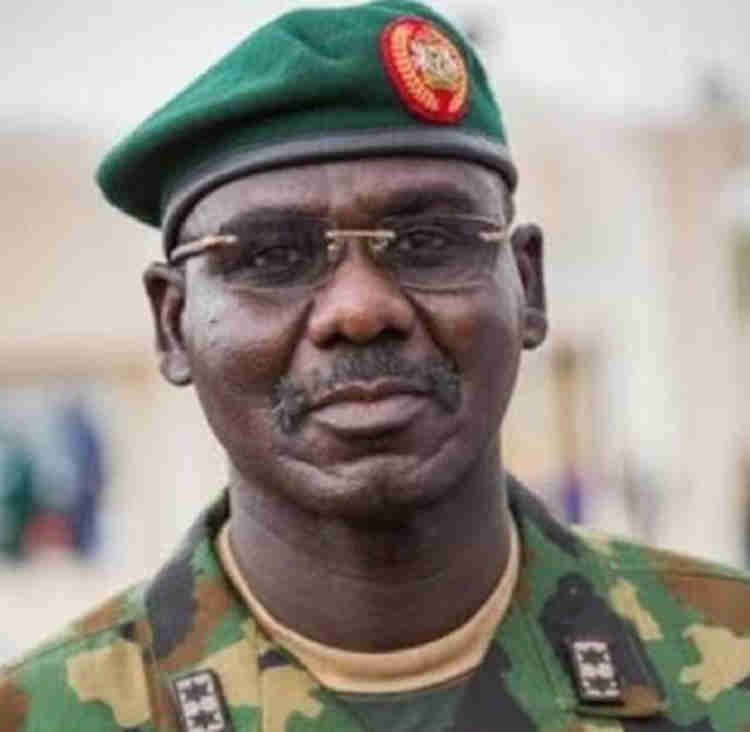No fewer than 356 soldiers in the North-East and other theatres of operation have applied to the Chief of Army Staff, Lt Gen Tukur Buratai, for volunt
No fewer than 356 soldiers in the North-East and other theatres of operation have applied to the Chief of Army Staff, Lt Gen Tukur Buratai, for voluntary retirement, citing “loss of interest” as their reason for disengagement, ThePunch is reporting.
The soldiers wrote to the army chief on July 3, 2020, under Reference NA/COAS/001, quoting the Harmonised Terms and Conditions of Service soldiers/rating/airmen (Revised) 2017. The approval of the voluntary disengagement of the 356 soldiers was contained in a 17-page circular from Buratai, AHQ DOAA/G1/300/92, signed by Brig Gen T.E. Gagariga for the army chief and obtained by our correspondent on Saturday.
Also, the document was copied to Headquarters, Theatre Command, Operation Lafiya Dole, Borno State, the Headquarters of 1, 2, 3, 4, 6, 7, 8, 81, and 82 Divisions of the Nigerian Army and other formations.
From the list that the majority of the soldiers applying for voluntary disengagement and citing loss of interest are from the North-East theatre of operation – a development which military sources attributed to loss of morale, poor weapons, unimproved allowances and the continuous loss of soldiers to Boko Haram attacks.
Since the beginning of 2020, Boko Haram onslaughts on military locations in the North-East have also intensified with large casualties on the part of troops of the Nigerian Army. In March, the Defence Headquarters, Abuja, said 47 soldiers were killed by a bomb explosion triggered by Boko Haram in Gorigi near Allargano Forest area in Borno State. In the same month, the army confirmed losing three soldiers while others were injured in a Boko Haram attack in the Damboa Local Government Area of Borno.
In May, the insurgents also attacked an army location belonging to the 156 Battalion in the Mainok area with at least 10 gun trucks, killing five soldiers, while others were injured. In June, the Boko Haram terrorists became emboldened and shot dead an acting Commanding Officer of the army, Major K. Yakubu, during a gun battle in the Doron Naira and Magaji areas of Borno State. The late CO, who was in charge of 401 Special Forces Brigade, also lost some of his troops in the terrorist attack.
The 356 soldiers who applied for voluntary retirement citing loss of interest are Master Warrant Officers, Warrant Officers, Staff Sergeants, Sergeants, Lance Corporals, Corporals and Privates. The total number on the list of voluntary disengagement is 380; while 356 cited loss of interest, 24 cited “to take a traditional title.”
Writing on behalf of the army chief, Buratai, in the document, Gagariga said, “In compliance with the provisions of Reference A, the COAS vide Reference B has approved the voluntary and medical discharge of the above named MWO, and 385 others listed as Annexes A and B. The soldiers are to proceed on terminal leave December 3, 2020, while their disengagement date takes effect from January 3, 2021, in accordance with the Nigerian Army Administrative Policy and Procedures No 27 Paragraphs 3 and 4. Accordingly, I am directed to request formations and units to release all affected soldiers to report at the Headquarters, Garrison, with their unit service documents for documentation.
“All forms of military-controlled items, arms, ammunition, and items of combat kits are recovered from the soldiers prior to their disengagement date and certify that they are properly de-kitted. Please acknowledge.”
A military source said the mass disengagement was indicative of the general discontentment in the army, and against the leaders. Soldiers in recent times have also appeared in viral videos complaining about the poor quality of their fighting equipment in the North-East and how the Boko Haram terrorists are able to attack and kill troops due to alleged insiders’ connivance.
